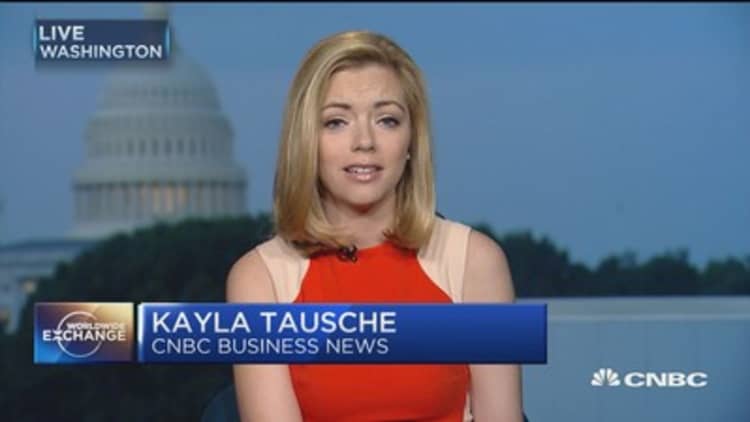
The high-stakes, public testimony on Russia and the Trump administration continues Tuesday as Attorney General Jeff Sessions appears before the Senate Intelligence Committee.
Here is how Sessions — an early Donald Trump supporter and campaign advisor — fits into events around Russian interference in the 2016 election, and the investigation into links between the Trump campaign and the Kremlin.
January: In the hearing to confirm him as attorney general, Sessions said he did not have contact with Russian officials despite being considered a "surrogate" of the Trump campaign. "I have been called a surrogate at a time or two in that campaign and I didn't have — did not have communications with the Russians, and I'm unable to comment on it."
March 1: The Washington Post counters Sessions, revealing that he in fact met twice with the Russian ambassador to the United States, Sergey Kislyak, in 2016, while he was still a U.S. senator.
March 2: Sessions says he will remove himself from any investigations into the Trump campaign. He says he "should not be involved in investigating a campaign I had a role in." Sessions defends his misleading confirmation testimony, saying that he answered the question only within the context of his role in the Trump campaign. "In retrospect, I should have slowed down and said I did meet with one official a couple of times and that was the Russian ambassador."
May 9: Trump abruptly fires FBI Director James Comey, who is leading the FBI's Russia investigation. Initially, the White House says Trump did so "based on the clear recommendations of both Deputy Attorney General Rod Rosenstein and Attorney General Jeff Sessions." Critics have questioned why Sessions was involved in the decision, since he said he was distancing himself from the investigation.
June 8: Sessions figures prominently in Comey's dramatic testimony before the Senate Intelligence Committee:
- Comey says he came away from a Feb. 14 conversation with Trump with the impression that the president wanted him to drop an investigation into former national security advisor Michael Flynn. Comey adds that he didn't share that conclusion with Sessions because the FBI assumed Sessions was going to recuse himself from the Russia probe, which he did on March 2. "He was very close to and inevitably going to recuse himself for a variety of reasons. We also were aware of facts that I can't discuss in an open setting that would make his continued engagement in a Russia-related investigation problematic."
- Comey tells senators in a closed session about a "possible third interaction" between Sessions and "Russian officials" last year, according to NBC News. Sessions has acknowledged only two meetings and the Justice Department denies that a third took place.
- Comey says that, after the Feb. 14 meeting, he told Sessions he did not want further direct communication with Trump. The former FBI chief says Sessions remained silent. The Justice Department disputes that account.
Sessions' testimony before the Senate panel starts at 2:30 p.m. ET.


